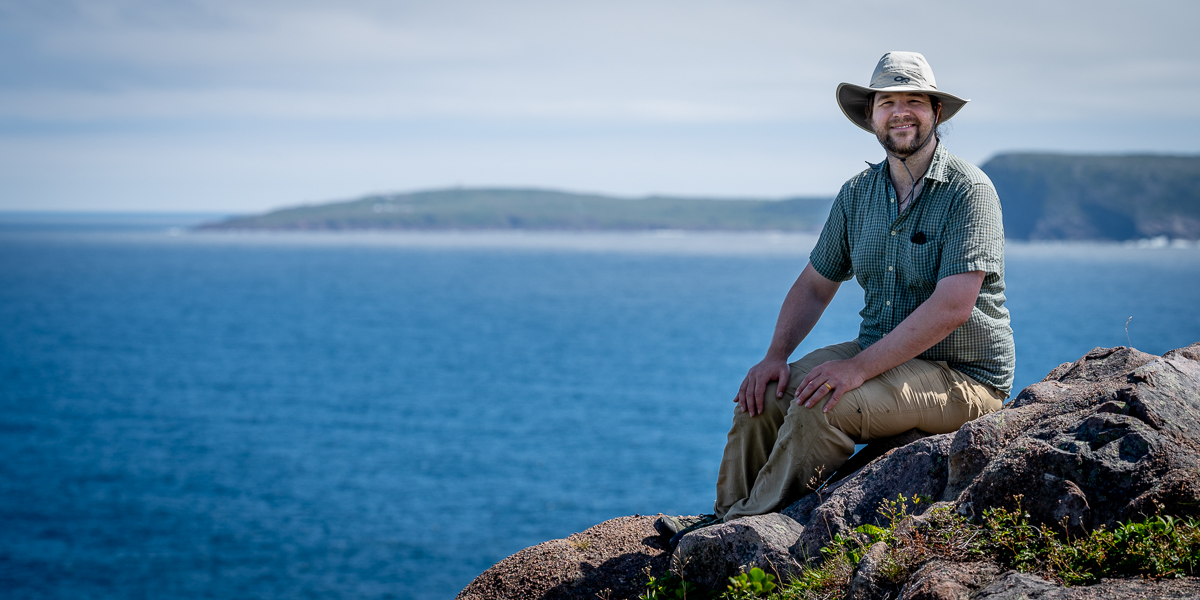Mr. Vallotton is a soil scientist with cross-training in environmental science and agriculture, and is currently a doctoral student (2019 to present) at the Memorial University of Newfoundland under the supervision of Prof. Adrian Unc. Mr. Vallotton’s doctoral research focuses on soil respiration dynamics in boreal ecosystems, and how soil respiration can be used to understand soil C dynamics. He is particularly interested in how land transformations (i.e. forest->crop agriculture->other agriculture->abandoned->forest) affect soil respiration dynamics, soil C, and soil health.
Previously, Mr. Vallotton studied different forms of tillage in organic agroecosystems and their effect on vegetable production; headed a project to do a side-by-side comparison of all US soil orders for soil respiration and abiotic factors; helped to quantify differences in efficacy for various soil respiration methods and to push out a new unit based on IRGA technology; led data gathering and curation efforts for a cattle farm in Virginia to create a tool for farmers to understand their soil dynamics; and participated in various projects researching soil C and novel agricultural technique applications.
Mr. Vallotton’s work illuminates how soil respiration can be used as a tool to understand and quantify soil management effects at the grid, field, farm, regional, and global scales, and how to understand soil variability at these scales and its relationship to soil management and land conversion. His research focuses on agricultural productivity in the northern boreal regions of Canada, helping to better understand the practicability of agricultural expansion into northern boreal regions, its effect on soil fertility, how soil C dynamics change, and asks the big question: should we be expanding into these regions at all, climate change notwithstanding? His work centers on the boreal regions of Canada, particularly the Atlantic/maritime provinces, but has also taken on a global characteristic.
Mr. Vallotton’s first doctoral project integrated soil health with quantification of small-scale variability (30 metre scale) on a farm in Labrador (Pye Centre for boreal research). He systematically measured soil at two depths across an entire farm in a grid pattern, and highlighted both the high variability of the boreal landscape, as well as how field observations can oftentimes be entirely in conjunction with quantitative measurements.
Mr. Vallotton’s second doctoral project was in conjunction with Agriculture and Agri-Food Canada (Memorial University of Newfoundland, Dr. Adrian Unc; and Agriculture and Agri-Food Canada, Dr. Louis-Pierre Comeau and Dr. Claudia Goyer) and examined soil health across the five Atlantic provinces of Canada. His research investigated the relationship of respiration to highly variable physicochemical soil properties on the regional scale.
Mr. Vallotton’s third doctoral project examined the impacts of field management (particularly rock pulverization as a method of improving soil parameters and workability) on soil health (respiration and nematodes) and soil abiotic factors. This work was done both on three soil orders and down the soil profile at different horizons, all on a single farm, and highlighted how soil pulverization (management) does not change soil properties as drastically as land conversion from a natural to an agricultural state.
Mr. Vallotton’s fourth doctoral project was funded by the Kimberley Foundation, and involved gathering soils from ten unique global locations within the boreal or boreal-temperate ecotone regions (UK, Ireland, Finland, Switzerland, Mongolia, Japan, New Zealand, Alaska, Saskatchewan, and Quebec). Each location had, at a minimum, soils from four different land uses (natural, agricultural wheat, pasture, and abandoned) that represent a transect of land conversion, and will be examined for soil respiration and abiotic factors to see if universal patterns exist that can inform land management decisions. Additionally, Mr. Vallotton has also worked on understanding small-scale genetic (bacterial/fungal) variability on farms in Newfoundland.
Overall, Mr. Vallotton’s research has highlighted the effects of land conversion in boreal regions, its effects on soil C dynamics, and the highly variable nature of boreal soils. He demonstrates how soil respiration is a useful indicator to understand these factors when contextualized by soil abiotic factors, and points to a novel, often unmeasured factor in soil respiration measurements: the percentage of respiration activity and its distribution over time.
Research interests:
- Soil respiration dynamics across ecoregions and climatic zones with a focus on boreal regions, as well as understanding how different combinations of soil climate and plant cover influence the partitioning of soil respiration response to ‘burst’.
- The efficacy of different methods of measuring soil respiration with an emphasis on ‘burst’ respiration and its relation to basal respiration.
- How different soil management practices (especially tillage) affect soil C and other measures of soil health.
- Effects of agricultural practices on soil C dynamics.
- Composting and the effective utilization of it in agricultural settings
- Bridging the gap between farmer practice and laboratory science.
Education:
- B.A., Summa cum Laude, Double-major in Environmental Science/Sustainable Agriculture and Liberal Arts, Eastern Mennonite University, Virginia, USA
- MSc in Plant, Soil, and Environmental Science, University of Maine, USA.
- PhD (in process) in Soil Science, Environmental Science, and Agriculture, Memorial University of Newfoundland (MUN), Canada.
Research and Academic Experiences
- Student Researcher in soil respiration, Agriculture and Agri-Food Canada, Fredericton Research and development centre (2019-present).
- Research Scientist at Woods End Laboratories (2018).
- Student Researcher on SARE “organic tillage in agriculture” project (2016-2018).
- Soil, water quality, and agricultural consultant and data curator at Innisfree Farm (2012-2013).
- Laboratory researcher and soil scientist for soil carbon projects focusing on soil geothermal systems; soil diurnal respiration; and landmine degradation in Cambodia and Jordan (2010-2012)
- Soil scientist for project assessing commercial blueberry production on alkaline soils (2009)
- Lab assistant for phytoremediation of metal contaminants from coal byproduct slurry and biosolids project (2005)
- Biology teaching assistant at the Memorial University of Newfoundland (2019-present).


